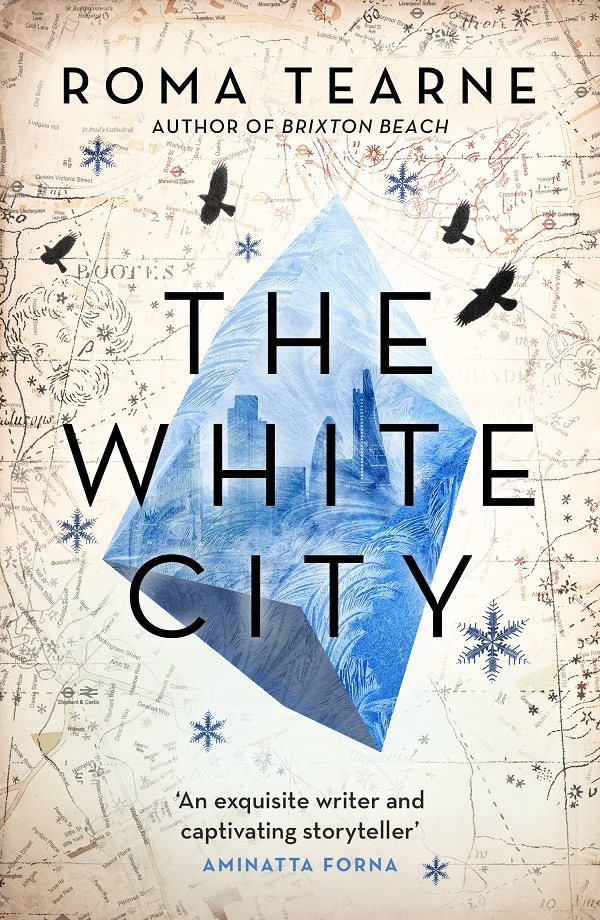You have no items in your cart. Want to get some nice things?
Go shopping Since the publication of her Costa-shortlisted debut, Mosquito, Roma Tearne has earned a devoted following for her lyrical prose interspersed with sharp societal analysis. A Sri Lankan-born novelist now living in Britain, Tearne has also found success with Brixton Beach and The Swimmer. Her novels consistently illuminate the cracks in society and the humanity that bridges them.
Since the publication of her Costa-shortlisted debut, Mosquito, Roma Tearne has earned a devoted following for her lyrical prose interspersed with sharp societal analysis. A Sri Lankan-born novelist now living in Britain, Tearne has also found success with Brixton Beach and The Swimmer. Her novels consistently illuminate the cracks in society and the humanity that bridges them.
That Tearne is also an artist is no surprise. Painters feature often in her novels and her writing exhibits a nuanced pictorial strength. In this latest novel, The White City, Tearne adopts a perennial blizzard as a white canvas on which she paints a story of familial breakdown, lost love, and political upheaval.
This – her seventh book – sees London as the chilled, limping victim of climate change. Scores die daily in the frozen wasteland of a decades-long winter and corpses lie encased only in ice. Lines of frozen cars stand long-abandoned. The capital – wrought by the elements – nears a hypothermic death-rattle.
This frozen era faces an equally terrifying transformation in its political climate. A totalitarian regime assumes power in Britain; dissidents soon become the ‘disappeared’, and torture is common currency. Injustice and starvation is a daily reality but – true to British endurance – life goes on.
Hera is the daughter of immigrants and an aspiring artist. A rational young woman, she wonders in annoyance how the medieval beliefs of her parents have survived beyond modernity. Her family – long dysfunctional and languished by civil unrest – are thrown into a turmoil that tests fragile bonds. Hera’s brother, Aslam, is arrested on terrorism charges. Such are laws in new fascist Britain that the family are told little about his fate. Rumours say he may be in a concentration camp known for Hitlerian brutality.
Hera’s mother is stupefied by the shock of Aslam’s arrest. Her husband is compulsive in prayer and futile in action. It falls on a close uncle to try and piece together Aslam’s fate and to try and bring home his nephew.
Hera’s solace throughout this chilling nightmare is her astronomer lover, Raphael, a scarred survivor of the Chile’s former Pinochet regime. Raphael’s victimhood at the hands of one dictator provides a historical parallel for the new wave of authoritarianism under which this new Britain is suffering.
The story of Aslam’s fate and the family’s fight to save him is punctuated by Hera’s memories of time spent with Raphael. Her internal dialogues retell memories of time with this enigmatic older doctor, and her longing to see him again.
Persistent winter as a setting has little functional value in this novel; most of what transpires could have happened in normal weather. But the cold, snow, and rain provide a unique aesthetic backdrop. It is in description of the climate, not its utility, where Tearne’s writing shines. The rationalities of such a cold decades-long spell don’t always make sense. In a city where corpses freeze in the streets and the homeless are frying rats for food, it’s odd that the bus and train services still operate. Perhaps I underestimate the robust spirit that imbues the staff at Transport for London depots across the city.
A closer proof-read was in order as the narrative has minor inconsistencies but these small errors do not detract from what is an erudite and original novel.
Most surprising is the amount of well-written suspense. As Hera ventures deeper into the truth behind the corrupt ‘system’ and her own fragile identity, the plot takes unexpected yet satisfying turns. Tearne is a master of the chased-and-hunted dramaturgy.
Although at times rough at the edges, The White City is a fresh, poetic, and gripping story of love and endurance.
The White City is published by Aardvark Bureau.

About David Stewart
David Stewart's background is in journalism both in newsrooms and freelance. He has done some sub-editing for nationals and reported for rural newspapers. David also enjoys reviewing the arts and reading all kinds of books.




